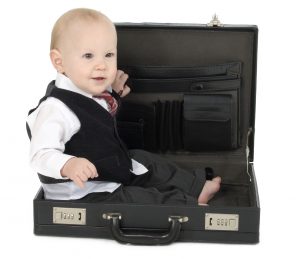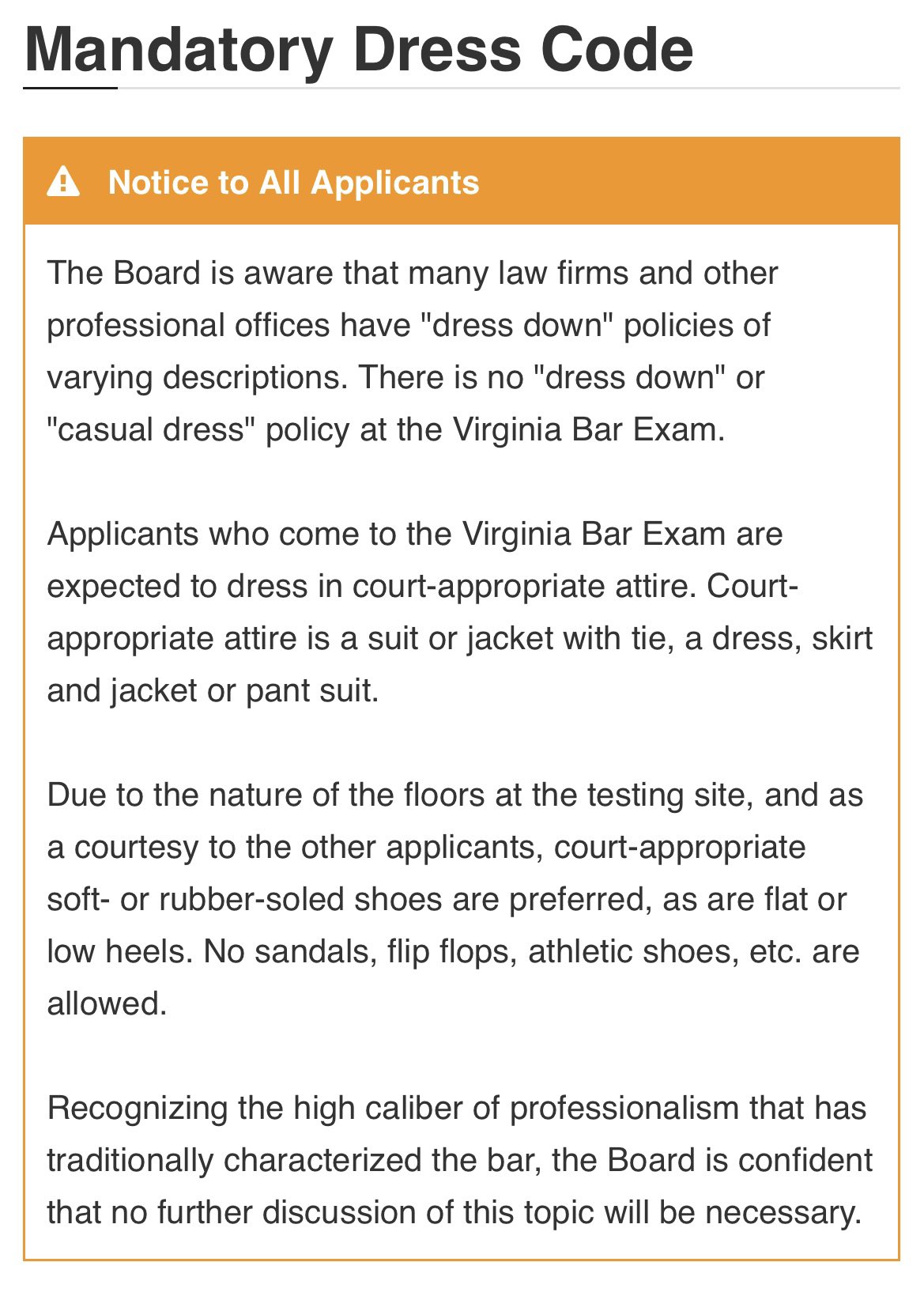Virginia Bar Exam Continues To Embarrass Itself
Singling themselves out for ridicule... to what end?
 Justifying an in-person bar exam is already an uphill battle. A closed-book, generalist, doctrinal exam bears little to no relation to the modern practice of law. Tightening up accreditation requirements and adopting diploma privilege so students never get gouged by law schools without any path to practice remains the best alternative.
Justifying an in-person bar exam is already an uphill battle. A closed-book, generalist, doctrinal exam bears little to no relation to the modern practice of law. Tightening up accreditation requirements and adopting diploma privilege so students never get gouged by law schools without any path to practice remains the best alternative.
But Virginia is so far off the rationality scale that we’re not even to the point of discussing licensing reform. We’ve still got to get bar examiners on board with applicants taking the test in normal clothes.
Virginia’s bar exam famously stuck to its own outdated dress code. Despite decades of criticism, the tradition remained largely untouched while the rest of society marched forward. One might have thought that a pandemic and the experience of remote bar exams might offer the Board a face-saving opportunity to junk its roundly criticized policy, but you’d be wrong! It’s still here to torture students for no conceivable purpose other than the examiners’ collective disconnect from modernity.

The first paragraph of the statement says everything you need to know about the bar examiners’ state of mind. They’re fully aware of how law firms actually operate, but they’d rather enforce an archaic summer formal cosplay event than concede that the profession long since passed them by. Even invoking “court-appropriate attire” as an excuse reflects an egregious disconnect from the reality that many, if not most, of the examinees aren’t going to go to court with any regularity.
At least the term “pant suit” is explicitly included. In the not-so-distant past, bar examiners refused access to women who wouldn’t wear a dress or skirt. So… good news! The examiners have successfully made it to the mid-1960s.
“[T]he Board is confident that no further discussion of this topic will be necessary.” An epic and appropriate conclusion. Tying off the message with a tone of big stick smugness highlights the small pettiness of the examiners. They are not a courtroom, but they demand that twice a year young lawyers superficially treat them like judges. It’s an ego trip, plain and simple.
Sponsored

AI Presents Both Opportunities And Risks For Lawyers. Are You Prepared?


Legal Department Financial Management Tools Decrease Legal Spend

Generative AI at Work: Boosting e-Discovery Efficiency for Corporate Legal Teams
But until people with a foot in the 21st century practice of law get involved and rise to leadership positions, this is how it’s going to stay.
 Joe Patrice is a senior editor at Above the Law and co-host of Thinking Like A Lawyer. Feel free to email any tips, questions, or comments. Follow him on Twitter if you’re interested in law, politics, and a healthy dose of college sports news. Joe also serves as a Managing Director at RPN Executive Search.
Joe Patrice is a senior editor at Above the Law and co-host of Thinking Like A Lawyer. Feel free to email any tips, questions, or comments. Follow him on Twitter if you’re interested in law, politics, and a healthy dose of college sports news. Joe also serves as a Managing Director at RPN Executive Search.
Sponsored

Generative AI at Work: Boosting e-Discovery Efficiency for Corporate Legal Teams








